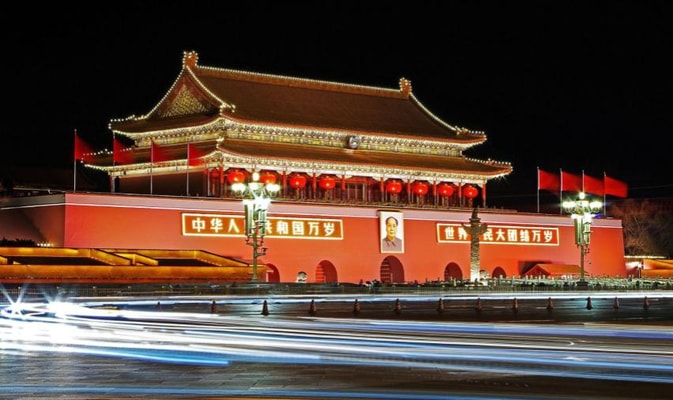Analysing the key factors of investing in China

28 JAN, 2022
By Constanza Ramos

Regardless all the ups and downs the Chinese economy has suffered this yer, investing in China, the country that is growing as the second largest economy after the US, offers plenty of opportunities to foreign investors. However, one of the most significant external risks for foreign investors looking at investing in china, is the faltering relationship between the US and China, and the increase in policy unpredictability given China’s "common prosperity" objective. Which are the key factors of investing in China?

We were very interested in understanding the key factors of investing in China during this 2022, so we have asked, as always, the professionals within the asset management industry. We had the insights from Alliance Bernstein, Federated Hermes and BNP paribas.
Patricia Molpeceres, Sales Director Iberia Alliance Bernstein
We also expect that input prices for corporates will diminish, and the combination of stable economic demand and improved production conditions should help private investment recover. We don’t anticipate an investment boom, however, given the still challenging environment abroad and the persistence of domestic imbalances, particularly in the property sector.
There have been some preliminary signs of stabilization in housing sales in sequential terms, on the back of the government’s efforts to stabilize mortgage loans. But stable doesn’t mean strong. And we expect property sector activity to remain relatively weak on average during the year, but without a hard landing. Production restrictions have been somewhat eased, but these supply shocks may remain headwinds on growth for sectors that cause heavy pollution given the government’s longer-term focus on environmental issues.
Decent cyclical policy support is needed to achieve what our forecasts envision, and we expect it will be delivered. Public investment growth will likely be higher in 2022, supported by strong local government special bond issuance, with part of the annual bond quota already pre-allocated to projects that should boost the economy in short order. Monetary policy should remain supportive, with robust credit growth to accommodate expansionary fiscal policy and to support some key areas, such as small and medium enterprises, decarbonization and manufacturing upgrading. We expect the People’s Bank of China to keep policy rates unchanged and at accommodative levels to anchor borrowing cost in the real economy.
Risk Factors
- Certainly, the risks around our above-consensus growth forecast are slightly tilted to the downside. Renewed COVID-19 circulation among China's trading partners could limit foreign demand, and rising infection rates in China could slow recovery in domestic consumption.
- While it’s possible that authorities could lose control of the property market, the probability isn’t high.
Kunjal Gala, Portfolio Manager Global Emerging Markets at Federated Hermes
The Biden administration is focused on other matters currently, however this year's mid-term elections could see a ratcheting up of tensions again. A challenge for U.S.-China relations going forward will be finding the right balance between competition and cooperation.
In fact, the Xinjiang bill has been passed by the US Congress and signed by President Biden. This bill bans any imports from Xinjiang region over concerns of forced labour, unless it can be proven otherwise. Textiles, clothing, solar panel manufacturing are potentially at risk.
In addition to this, there has been an increase in policy unpredictability given China’s "common prosperity" objective. At the same time, the continuation of China's zero covid policy, if maintained in the event of a major increase in infections, could cause further significant disruption to growth, consumption and domestic and global supply chains. Investors in Chinese assets will have to weigh the risks more prudently.
Finally, we have to admit that, in terms of investment in A/H shares, China has made it much easier for foreign investors to buy shares through the stock connect programs. Domestic companies favour foreign investors because of the longer investment horizon.
Elena Armengot, Sales Director at BNP Paribas Asset Management
1. Opportunity to get involved in the change in the Chinese growth model - Although China's engine is slowing down, it remains one of the fastest-growing regions worldwide. Annual GDP growth in China would be expected to fall to 4%-5% over the coming years, with Beijing's policy being focused on offsetting a slower pace of growth in GDP with better quality growth, focusing on a high-value manufacturing sector and the production of hard technology, as opposed to traditional manufacturing. Hard technology refers to the production of hardware and components. The main break with the past is that the government is now focusing on stable, quality growth, rather than rapid growth with little value-added.
2. Investment in Go Green areas The government's efforts to achieve carbon neutrality by 2060 will open up new growth sectors and investment opportunities to replace more polluting industries. China needs to improve its electricity grid infrastructure and develop energy storage systems, as well as improving energy supply and distribution. It also needs to reduce its consumption of fossil fuels, by using more green electricity. Investments in new sectors are estimated to amount to 5 trillion RMB (781 billion USD) per year, around 10% of China's revenues.
3. Chinese shares: One of the biggest equity markets in the world, very much under-represented in international indices and portfolios.
4. Attractive valuations. Chinese shares are attractively priced, whether compared against valuations on developed markets or their historical average.
If you are interested in more articles about the key factors of investing in china or other emerging markets, check out our insights section!
Related articles
 Granolas Stocks: what they are and differences with the Magnificent 7
Granolas Stocks: what they are and differences with the Magnificent 7By RankiaPro Europe

